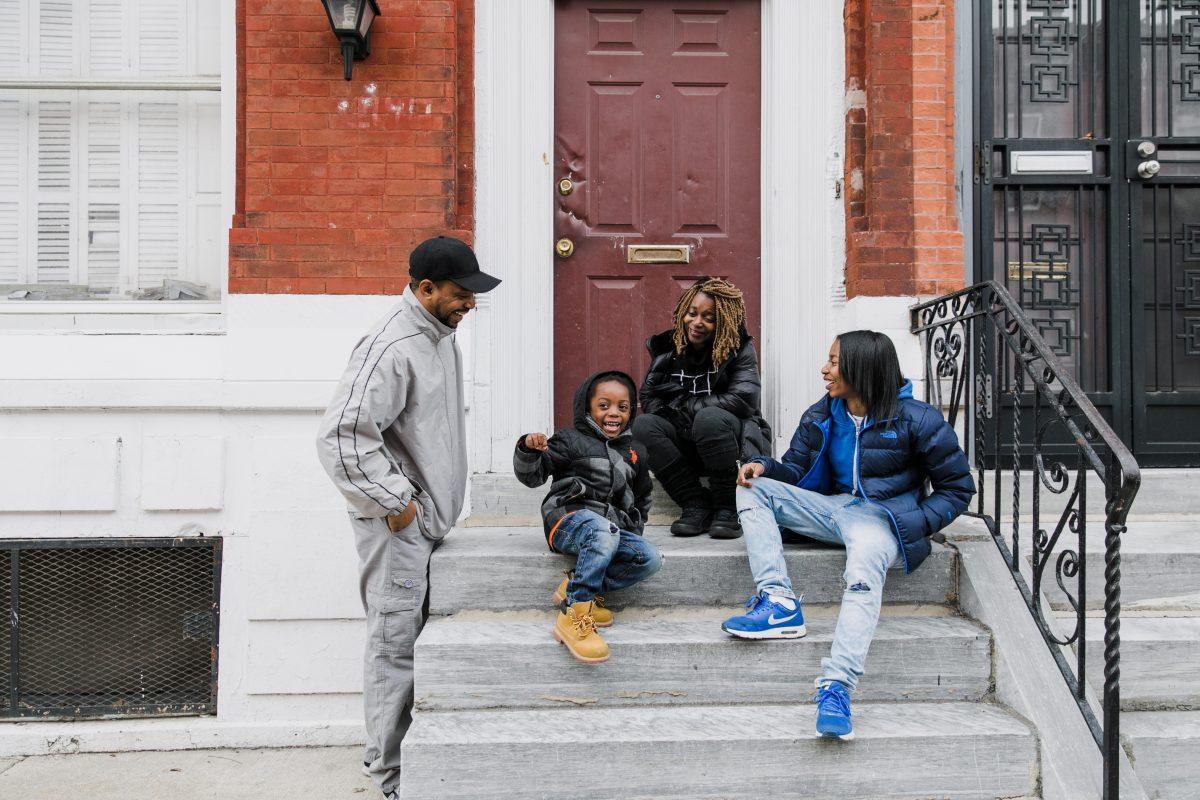“Quest” is the best documentary you haven’t seen yet.
The best documentaries don’t only educate; they tell deeper narratives which illuminate parts of our world often not given substantial consideration.
“Quest,” released this year and directed by Philadelphia-based filmmaker Jon Olshefski, achieves this goal. Olshefski’s documentary follows the ten-year journey of the Rainey family as they navigate everyday phenomena of loss and joy, their story often speaking to broader issues facing inner city communities, such as gun violence.
The documentary’s namesake is Christopher Rainey, a music producer known as Quest to friends and those in his North Philadelphia neighborhood who come to Freestyle Friday in his home music studio.
Christopher and his wife Christine’a, who works in a shelter for domestic violence victims, are parents to seven-year-old daughter PJ and teenage son William, who battles brain cancer early in the film, finding out meanwhile that his girlfriend is pregnant.
The film is given real-world narrative structuring in its depiction of the Raineys’ reactions to the election and re-election of Barack Obama in 2008 and 2012, as well as the election of Donald Trump in 2016.
Olshefski met the Raineys in 2006 while teaching a photography class at New Jerusalem Now, an addiction recovery center in North Philadelphia. One of his students was Christopher’s brother James, who invited Olshefski to the Raineys’ house to take pictures for what Olshefski then planned on turning into a photo essay. Christopher Rainey invited Olshefski to continue filming his family’s life, to which Olshefski immediately agreed.
Accumulating more than 400 hours of footage over ten years, Olshefski’s project took several turns creatively, becoming an ambitious solo-documentary project and subsequently a fully-staffed documentary film that would eventually premiere to rave reviews at the prestigious Sundance Film Festival. Since then, it has been met with critical praise from major newspapers and smaller publications alike; Variety magazine called “Quest” “a living, breathing, stunning documentary study of an African-American family in North Philadelphia weathering a tumultuous decade.”
I called Olshefski while he was in Los Angeles for the Independent Spirit Awards, where he was nominated as a director for the Truer than Fiction Award, and where “Quest” was nominated for Best Documentary Feature. Olshefski won the Truer than Fiction Award, along with a $25,000 grant for his next project.
Annie Clark: “Congratulations on all the success! How have people been reacting to “Quest” both in the North Philadelphia community and outside of it?”
Jon Olshefski: “Thank you! The Rainey family feels like they can get behind [the film] and say, ‘This is what our lives are like. It’s true.’ They feel good about the film, and are willing and interested and continue to be a part of it now that it’s out in the world. [That] folks in the community have seen it and have gotten behind it is really encouraging…that’s been the greatest thing. Critics have been very nice, but the feedback that I hold most dear is the feedback from the people who come from that place, and it’s been very positive.”
AC: “‘Quest’ does not have any third person narration, even intertitles. Why did you choose to present the story of the Rainey family the way you did, and how did you decide what made the final cut?”
JO: “The sense that they Rainey family was telling their own story was very intentional. I wanted the viewer to feel like I felt, like someone who was invited in as a guest but was present as a family member, just that warmth and openness that I experienced. I wanted the film to create that same sense, and allow the Raineys by telling their own story to invite the viewers in. Everything was measured up against being authentic and telling the truth but [considering] what we can do so that the viewer can know, understand, and connect to the Rainey family and North Philadelphia and see themselves in that story. [We were] looking for the universal moments that were very relatable.”
AC: “How did you approach making a cohesive, feature-length story out of a family’s day-to-day life?”
JO: “In crafting the story, [we want] every scene, every shot to add something new. There are sort of these repetitions of routine, like PJ going to school. We see PJ go to school three times; the first time when she’s probably eleven years old, and she’s on the back of her dad’s bike. And then you have another scene that takes place a couple of years later while she and her dad are walking to the bus stop on election day [in] 2012. And then you have another scene where they’re walking to the bus after she’s come through [a] crisis. In each of those [scenes], you see this connection between father and daughter that sort of transcends time. Between walking to the bus in 2012 and walking to the bus in 2013, PJ’s life is completely changed, but her dad is still a presence in her life.”
Temple University will host a screening of “Quest” at the Howard Gittis Student Center at 5 p.m. on March 26. More information about the film can be found at quest-documentary.com.
















































